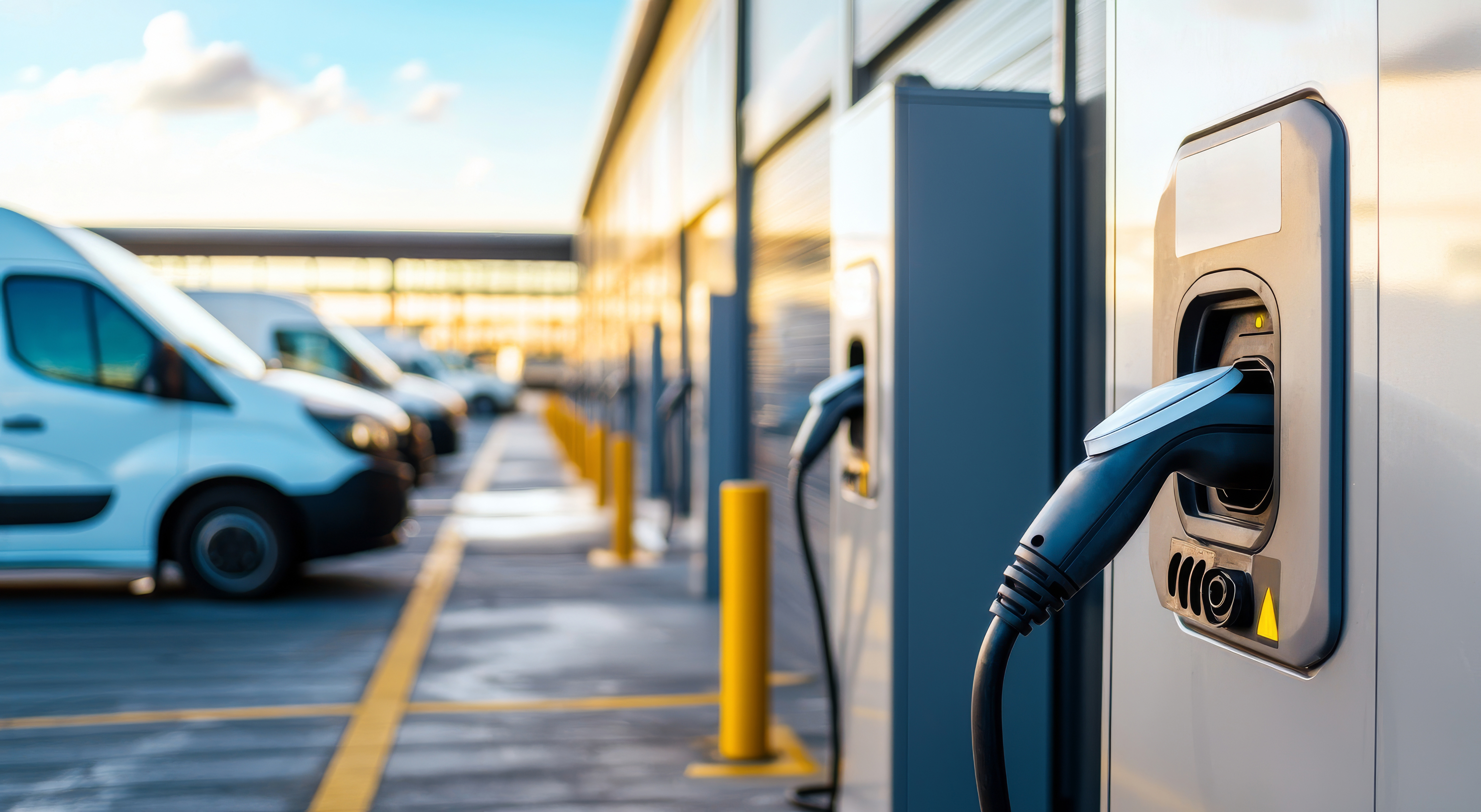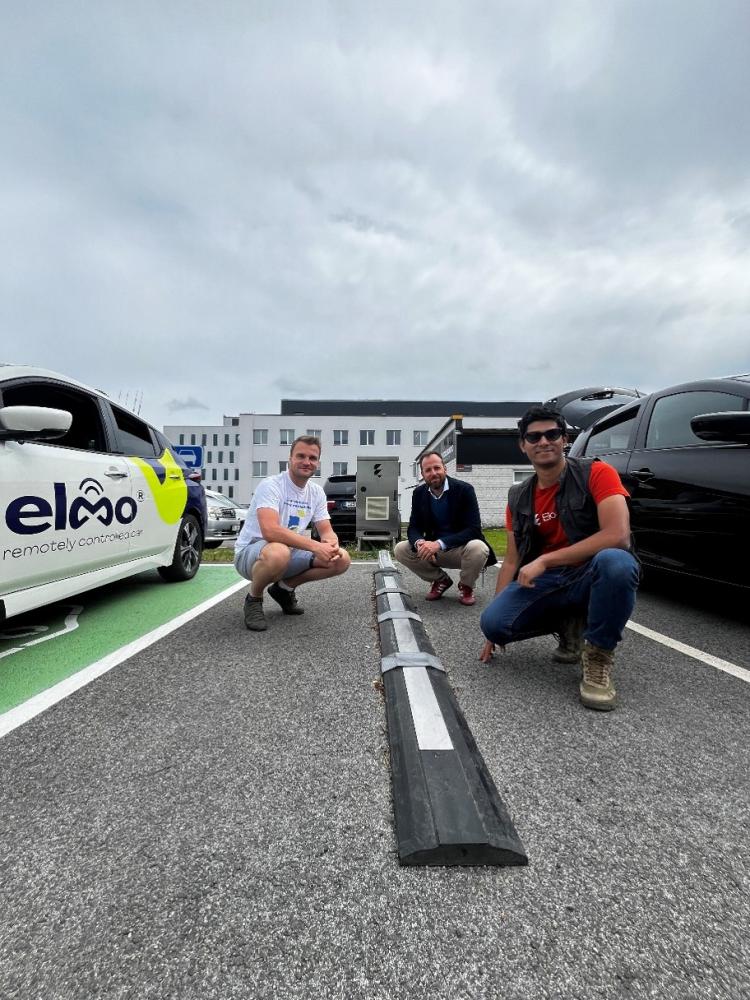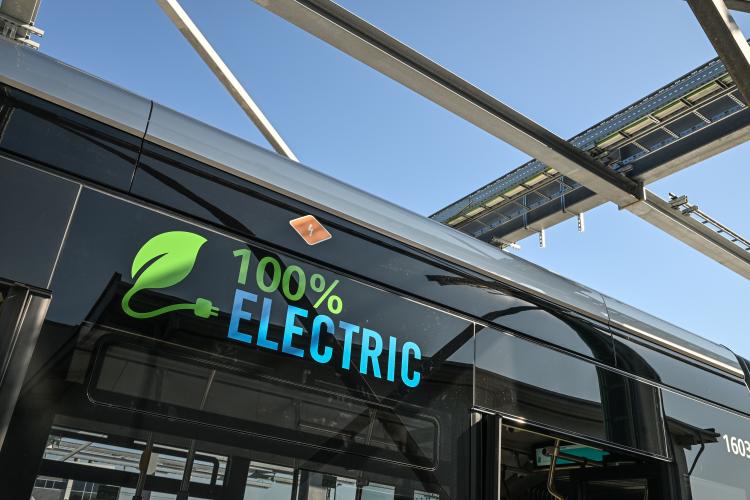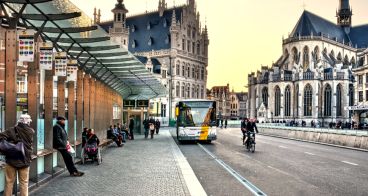Advancing sustainable charging in Tallinn

The Challenge
In Tallinn, Estonia, one of the key challenges faced by the urban mobility sector is the efficient integration of electric vehicles (EVs) into existing infrastructures, particularly in car-sharing fleets and urban logistics. With an increasing need to electrify transport solutions and reduce emissions, there was a demand for a seamless, scalable charging solution that could serve multiple vehicles at once in an urban environment. Traditional charging systems, while effective, often proved to be slow and not fully optimised for commercial fleet operations, making it difficult to maintain vehicle uptime and efficiency.
The Solution
To tackle this challenge, the Elonroad System, a highly flexible, vehicle-agnostic charging solution designed for urban car-sharing operations was tested. The installation took place in the Tehnopol Science Park in Tallinn. The solution included the installation of a 60 kW charger along with a parking rail and retrofitting of a Renault Zoe to demonstrate the system’s vehicle-agnostic capabilities.
The Elonroad System was tested in a real-world environment, where it successfully supported vehicle charging in a short time, ensuring minimal downtime for fleet operations. In July 2024, the on-site demonstration was completed, marking the system’s readiness for commercialisation.
The project also included critical feedback loops, such as interviews with end users to refine the product further. The end users explained how the automatic charging solution from Elonroad adds value and provides the missing piece of puzzle for Elmo’s teledriving solution. These evaluations were integrated into the final product design of Model-1 60 kW Stationary Charging System, enhancing its market readiness.

Making an impact
The installation and testing of the Elonroad System resulted in several significant outcomes:
- Operational efficiency: the system demonstrated a success rate of over 80% for charging attempts, with vehicles charging within an impressive three-minute window. This reduced downtime and improved operational efficiency for fleet managers.
- Vehicle uptime: with over 90% uptime for the retrofitted vehicles, the system proved effective in maximising fleet availability, an essential factor for urban car-sharing and logistics operations.
- Commercialisation and market readiness: the solution has transitioned to a TRL 8-9 (Technology Readiness Level) stage, indicating its market readiness. The system is now in the commercialisation phase, with 3 contracts and partnerships in progress.
- Adaptability: the Elonroad System is vehicle-agnostic, meaning it can serve a wide range of EV models. This makes it a highly versatile solution for various urban mobility scenarios, from car-sharing to last-mile delivery services.

Lessons learnt
The innovation provided valuable insights into the development and deployment of urban charging solutions:
- Customisation is key: the change request in February 2024, which added a winter adaptation feature to the system, was crucial for addressing the challenges of operating in a colder climate. The adjustment was completed faster than anticipated, highlighting the importance of being flexible and responsive to emerging needs during product development.
- Stakeholder collaboration: the successful deployment in Tallinn was made possible through close collaboration between Elonroad, Elmo, and local partners. The integration of vehicle retrofitting and local expertise in installation ensured that the system was tailored to meet both technical and operational requirements.
- Real-world testing: testing the system in a real-world environment, rather than in a controlled setting, was essential to understanding its practical performance. The feedback gathered from end users was invaluable in refining the system.
- Scalability considerations: the lessons learned will be applied to expand the system’s deployment to other urban areas. The ability to integrate the charging solution into various urban mobility operations, such as car-sharing and autonomous transport systems, could significantly contribute to the global shift towards electrification.






